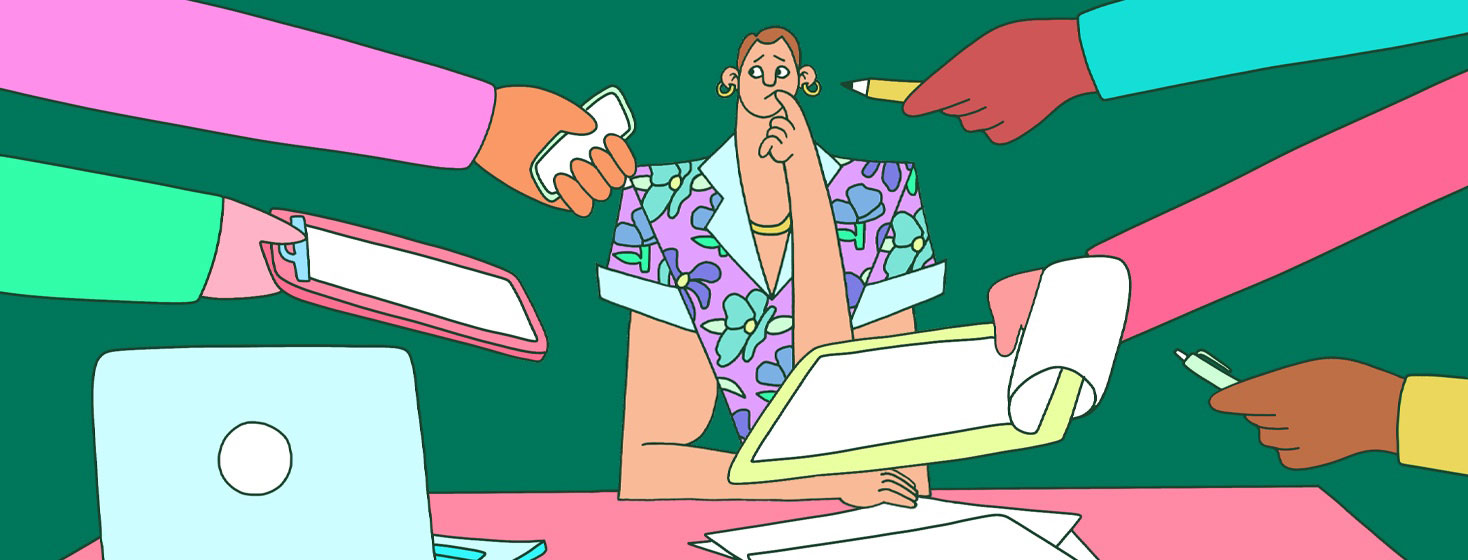When Disclosure is a Lifelong Experience, What Do You Do?
My viral load has been undetectable for 20 years. This has kept opportunistic infections at bay, leaving me to deal with other challenges to my health. Like the time I sprained the tendons on both sides of my ankle.
While I was willing to grin and bear it, my husband was driven crazy by my limp. That’s how I ended up sitting in a foot doctor’s waiting room filling out paperwork. As expected, I reached the part when you must disclose any conditions or current medications.
Sharing my HIV status
I asked myself whether my foot doctor needed to know my HIV status. I knew the answer was yes. He might prescribe a medication that could interact negatively with my current prescriptions. I decided to let them know when I felt the time was right.
This is part of a more significant issue for me. How many times will I have to disclose my status?
Over the years, I’ve come to believe that the answer ranges from "a lot" to "only when I want to."
Despite living openly for 30+ years, I still feel the lingering sting of stigma when I make that decision. And it’s not just from living through the early days of HIV.
Intolerance and misinformation about HIV
Recently a friend shared an online review about his restaurant. The customer was unhappy that an employee was open about their sexuality. They warned others that this bartender could cut their hand, bleed on the ice, and people would catch AIDS.
There will always be intolerant people. I also know that disclosure is a part of life with HIV. Sharing that information can be very empowering. It demonstrates that you are in control of your information.
Over time, I’ve come to practice a few things that make the process work for myself and the person I want to share the experience with.
I take my time choosing the time and place
Some people don’t like surprises, and others don’t like bad news. While disclosing my status to someone may feel liberating, they will feel a mix of emotions I cannot predict.
I try to consider their feelings on the matter. How urgent is it that I share this with them? Is now a good time in their life to open up to them?
I respect their boundaries by inviting them into a comfortable and safe space. By choosing the place, I have control over the situation. If I determine this is not the right time; I am already comfortable with stopping the process.
Their reaction has nothing to do with me
We don’t know everything other people are dealing with in their lives. How someone reacts when you share your status is about their emotional reaction. It has nothing to do about me. They may ask you how this happened or why you have waited so long to tell them.
This is their way of processing the information you have given them. I remember that disclosure is a two-person process. I am asking them to be there for me, and I must be there as they work through it.
Allowing time for others to process
Am I willing to allow them the time they need to process this?
Before sharing with someone, I take a minute to remind myself how long I needed to come to terms with my status. I always refer to living with HIV as being on a journey and giving someone the knowledge of my status is their first step on the road.
I know I can’t go in with expectations of immediate acceptance. If that happens, then that’s great. But it may take time for someone to find the words to express their feelings. And I must be willing to wait for them to find their voice.
Living with HIV can be a long-term affair without a straight trajectory. There will be times of confidence and times of distress. But no matter how often you must do it, disclosure can be a wonderfully healthy and mutually beneficial experience for those you choose to do it with.

Join the conversation